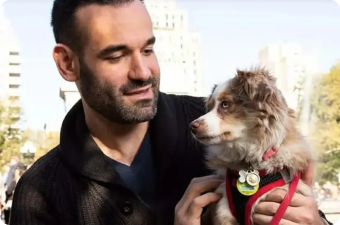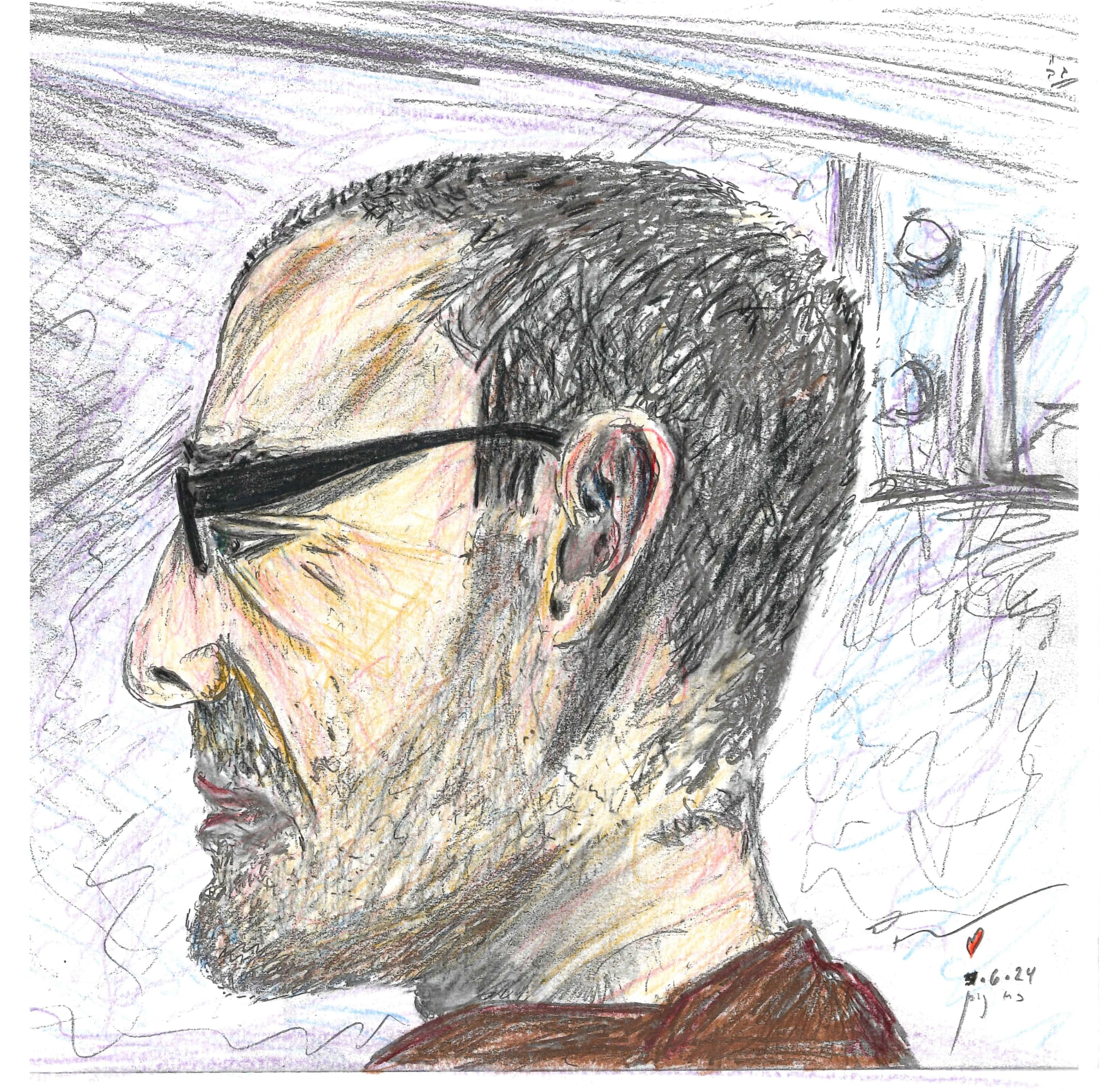Some thoughts on the guys in for sex offenses, after having the unique experience of living with a lot of them for 6+ months and interacting with them frequently (they make up possibly a majority of the population here, especially if you discount the largely non-English speaking Puerto Rican gang members).
1. All of them were abused as a child, without exception.
2. By a sibling, step-sibling, or neighbor.
3. The first abuser was also often under-18 years old.
4. The first abuser was also an abuse-victim, and also reported #1 & #2 & 3.
5. The victim’s family does not validate their feelings, or they fear the family will not validate it. This includes taking them to therapy to stop their complaining (versus validating the complaint) about the abuse.
5b. This applies to other folks with trauma, who witnessed abuse, of a sibling or other close relation, and who were not validated when complaining.
6. All develop some sort of Exhibitionist and/or voyer character to compensate/balance the child who is silenced/silenced themselves out of fear, usually within ~2 years of the abuse. (Ex, if they’re abused at 5, the exhibitionist emerges around age 7).
6b. This often develops into addictive and/or compulsive behaviour that endangers themselves or others… sex addiction (physical or digital), drugs, booze, other risky behaviour.
6c. All seem to attract and/or seek further abuse.
6d. There’s some sort of express attempts to win-over their abuser, perhaps somehow thinking this will stop the abuse / convince them to treat them correctly.
7. They brainwash themselves into believing (telling themselves and others) they enjoy it, an extreme form of self-denial.
7b. This (6&7) may be because the brain seeks homeostasis / equilibrium — constant terror is better than uncertain calm. They give themselves a clear “map” of the world, even though it’s untrue, it grounds them.
7b. However, they often, upon exploring these feelings, realize they only enjoy the feeling of control and/or certainty and/or “healing” of the “relationship”, and perhaps the physical sensation, but not the actual abusive relationship. If they could seek either in healthy means, they would not choose this method.
8. All fall into and operate-from a victim mentality. Everything is someone/something else’s fault — self-agency disappears.
8. All exhibit symptoms of low testosterone, at-least lower-than-average, but it seem to be a direct correlation (lower T symptoms -> more victimhood, more violations. Very few are physically active, fewer push themselves to get stronger/better at any physical activity. (They might walk to escape, but not to improve their physique, etc.)
9. All develop a character that is manipulative, in an indirect, passive-aggressive or harrasment/torment-driven way. This may be the Exhibitionist or another character around that age.
10. Around 14/15 (it seems to be common around this age) they develop a hyper-critic, someone who beats up on themselves, who lives in a traumatic world where those who were/are supposed to protect them cannot be trusted *but neither can they trust themselves*. This is a “mirror” character, where their inner dialogue about themselves is nearly-identical to how they speak of others (parents/caretakers, teachers, etc.). There are younger versions of this Critic, but at 14’ish it becomes debilitating and hijacks a lot of their life.
11. This critic feeds a cycle of depression and hopelessness (“nothing [is ever good enough / lasts / works out], so why bother…”
12. The criticism and hopelessness feeds a cycle, meeting people and experiencing/causing events that cause their beliefs to be reinforced.
13. Because vulnerability is dangerous, and they cannot trust themselves or others, they cannot handle actual criticism and “confrontational” methods of therapy are ineffective — they will leave (blaming something/someone)
before any breakthrough.
However, with non-confrontational IFS-style guided dialogue with these parts (the Younger Brother/Neighbor, the Exhibitionist, the Manipulator, the Critic, etc.), who serve as both “protectors” and “victims/exiles” at times (I think there’s cross-over, ven-diagram like), they are able to rapidly — within an hour sometimes — accomplish the following realizations: 1. They can show the ~14-year old Critic that they are able to care for themselves. This enables him to step aside and allow them to comfort and coach younger parts, whom he sees their Self (and the guide/coach/therapist) validate.
2. They can show the Manipulator that people want to help them, like them, be with them, etc. without them needing to “manipulate” — by showing him examples from the past where they were helped, loved, etc without needing to manipulate.
3. They can show the “Younger Brother/Neighbor” (the youngest victim/exile), that they are able to speak up, express their voice, and get themselves away from danger, and have their voice validated.
4. This also shows the Manipulator that they can ask for help directly, and get what they need without games/hints/suggestions but asking directly.
5. They can show the Exhibitionist (the compensating character) that they are able to be loved without allowing others to violate boundaries, and/or without violating their boundaries.
6. They can ask these characters what they would like to be doing if they did not have to hold-onto these roles.
Often these younger characters want to just relax (they have been “parenting” since they were 14! compensating and “earning” love since they were 5 or 7!), help others, and/or work on creative goals…
7. They can redirect their energy to positive goals. For example, the Exhibitionist may enjoy singing with a band versus showing off in a way which is boundary-violating and/or co-dependent. The Boss/Manipulator may enjoy being a therapist or a leader of an organization, who inspires and directs openly and transparently (with trust, not with passive-aggressive/weak manipulation).
Following these and other realizations, which really can happen in an hour, I think the following are critical: 1. They must take on rituals (habits) that (a) get them organized (the environment reflects the mind), (b) gets them physically well (diet, exercise), (c) gets them regular practice socializing (Dale Carnegie “How to Win Friends…”), (d) gets them regular pratice handling rejection and loss so that they can handle larger setbacks without spiraling back into these characters.
(e) gets them focused on the future (long-term goals, daily tasks, short-term goals)
(f) gets them habitually grateful (thinking of the people and things they have when the world feels heavy & dark)
2. They must be in an environment / program that does not allow them to fall back / escape easily from facing the darkness for a bit. Often great loss triggers this (how many people end up in AA, therapy, prison, etc.), but this is a failure of society. In fact, such programs should be proactively built-into early schooling, camp, community centers, houses of worship, etc.
Without question, much of this stuff applies to victims of non-sexual abuse and trauma. Plenty of folks who were bullied and/or abused or witnessed or experienced trauma can use these same tools.
Many of these same ideas (the issues & solutions/rituals) are covered by recent therapy trends (Dr. Jordan Peterson’s 12 Rules for Life; Tony Robbins; Schema; Joe Rogan’s cast of beat-your-self up guys like David Goggins, Jocko Wilick, etc.). The “infantalizing” of society is getting a much-due pushback, and it needs to keep getting pushed back. Weak men hurt other people, strong men help other people.
What’s remarkable about IFS is there is no “beating up” on the parts, and for the first time in their lives, they feel “validated”, their feelings and concerns are treated as “real” because they are. Then they are helped to “mature”
and see the world from their adult, mature perspective without any criticism or judgement. They are loved as a perfect soul / Child of G-d, human being with infinite capacity for growth and change. This is critical for traumatized parts and their people.
In failing to validate children and other victims of abuse, we teach them to not only distrust others, but to distrust themselves, to ignore their “gut”, to silence their voice and not be assertive. This is a dangerous cycle.
In helping them regain their voice, first by giving them the trust and confidence to speak with *themselves* (their capital-S “Self”), to rely on themselves, we can help them avoid spiraling again.
It’s not overnight. Admittedly it can take a few road bumps and mistakes, but once you have this framework, each setback is an opportunity to help those parts that took over (“blended” in IFS speak) mature and learn to trust the Self, and to work as a quiet and calm team.
How this could impact justice reform: 1. Schools, Juvenile programs, and (worst-case) prisons become “boot camps” to help find, understand, and mature these parts. Sentencing first involves running people through such programs, because most will *not* need a cage if they can gain the strength & skills to “parent” themselves.
2. The focus is on maturing, losing the victim mentality, learning self-love, and finding purpose, not “punishment”
3. The physical setting, programming, diet, education programs, and sentencing are all aimed on helping men & women “stuck” in childhood mature and re-enter society as mature adults who can rely on and support themselves mentally and physically. It is all about “Lift Yourself Up. Every. Single. Day.” (TM ;))
4. Cultural shift continues to push “manning up”, and push away from the victim mentality / dependency. (There’s a reason Joe Rogan, Jordan Peterson, Tony Robbins, etc are popular.)
5. These ideas become the core goals of education, from early childhood through adulthood and into continuing education and online learning.
Anyway, just thoughts from 6+ months living with a lot of men who were abused and helping a few where I could, and seeing remarkable, rapid change… guys who woke up in trauma every night, sleep through the night, guys who blame everyone start going to the rec yard, asking for things directly, getting in shape, and helping others.
And yes (while thankfully I was never sexually abused) I have taken some of my own advice, and could always do a better job of that. 🙂
With love,
Ari
—-


